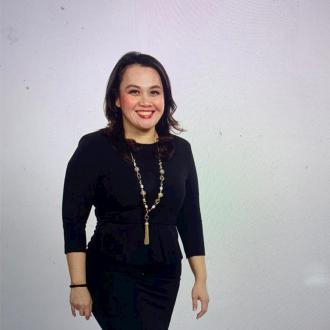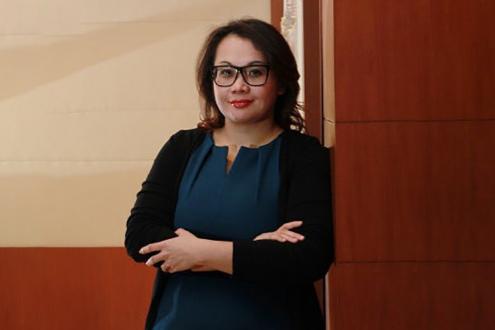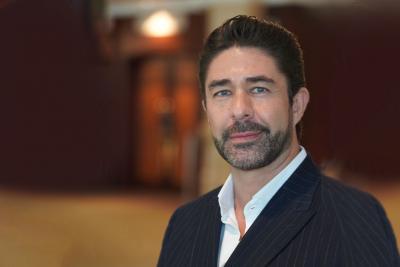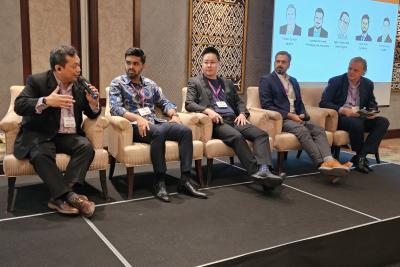Standard Chartered’s Wealth Management Head for Indonesia on the Value of Focus, Education & Professionalism

Meru Arumdalu of Standard Chartered Bank
Jul 23, 2021
Meru Arumdalu, Head of Wealth Management at Standard Chartered Bank in Indonesia, is at the heart of the wealth industry in the country and offered her valuable insights at our June 15 panel discussion on the evolution of the country’s wealth management proposition. She focused many of her insights on how the bank has been working hard to upskill and professionalise its team members and to educate the client base on the world of investments and insurance contextualised within wealth, estate and retirement planning. And she reported that the bank is also highly focused on where it can best compete, in which segments and with which types of products and offerings. She also explained that the bank’s advanced digital platform is making all this possible despite the lack of normalised client-banker interactions during these difficult times. The result is that despite the headwinds of the pandemic, AUM has been rising, and she and the bank’s leaders are optimistic about the future, especially if the vaccine programme can remain on track.
By way of background, after a major reorganisation and transformation taking some four years, Standard Chartered returned to profitability in 2019 and has since been enjoying growth at the top and bottom lines, and the bank’s leaders are intent on forging ahead in the region, with Indonesia one of the core markets, both historically and in its plans for the future.
During a recent Hubbis interview with Cedric Lizin, the Singapore-based Regional Head, Private Banking, ASEAN & South Asia, he had explained how Standard Charted Private Bank, a mid-size player relative to the global brand banks, had benefitted greatly from the four-year restructuring and was now significantly improving productivity, with revenue per RM across the private bank rising to USD2.1 million in 2020 and AUM per RM hitting USD250 million.
Engaging with the clients
Lizin had also outlined how the bank had focused a huge amount of effort on client engagement and, when it had surveyed its private banking clients, had indeed found that there were many areas where they were exceeding client’s expectations, which led him to conclude that even set against the global majors, their proposition is of high quality and well regarded.
The bank’s key products and expertise lie in important areas for clients, such as the open architecture curation of investments through a highly competitive platform, the bank’s industry-leading FX and structured products offerings, the robust and flexible credit offering, a commitment to sustainable, ESG-driven investments and dedicated life insurance solutions with in-house brokers. And the bank is also building out its ‘Alternatives’ product range and expertise as another key area for the future for its HNW and UHNW clients.
Indonesia – great potential
Indonesia is understandably at an earlier stage of the development of its wealth management offering than in the leading financial centres where Standard Chartered’s Wealth Management and other services operate most actively, such as Singapore or Hong Kong, but the bank has been working on greater collaboration and cross-fertilisation amongst the different countries, regions, skills, product teams to leverage the wide array of talent and expertise across its key markets, for the benefit of its private clients in all its markets.
Meru offered a balanced perspective on the bank’s proposition and success in Indonesia, offering the broad assessment that despite many global and domestic headwinds, the wealth management offering in Indonesia had been successful in forging ahead, improving its offering, building AUM and expanding its clientele.
The new ‘dynamics’ of client engagement
She explained that the pandemic had, of course, significantly changed the dynamics of the engagement with clients across the industry.
“Specifically, for Indonesia, we certainly have more digitally savvy clients today than, for example, in early 2020,” she reported, “but in reality, in the field of wealth management, most of our investors still really prefer face-to-face engagement. We have therefore been working hard to help improve the socialisation to our clients as to how they can engage with us, how they can use our services and expertise, so they understand our investment products and insurance offerings, and are well versed in how they can adjust their portfolios and so forth.”
The bank’s digital platform – a pathway to success
Meru explained that the bank’s well-designed digital platform is central to the bank’s ongoing success. “We have our online mutual funds offering, as well as the fixed income platform, and clients can transact directly through SC Mobile,” she reported. “Clients have had their eyes opened to just how much can be achieved via the digital platform we offer. And this is because we not only offer a very advanced platform, but we have also put a huge amount of effort into communication with our clients, so they are well informed in all of this, and so they are fully aware of what can be achieved remotely. Indeed, we have seen a good shift of penetration to the digital platform.”
She concluded this observation by reporting that Standard Chartered is, according to their internal research, doing as well as anybody in Indonesia in terms of digital engagement with clients. “Despite the wider challenges of this environment,” she reports, “we are really winning through in terms of our digital engagement with clients and in terms of their activity with the bank. We were highest in Net Promoter Score (NPS) for Total, Main & Personal Banking, and top NPS among global banks for Priority in 2020.”
Meru explained that thus far in 2021 in Indonesia, there is not, as yet, any noticeable pick-up in either economic activity or sentiment, although, on a more positive note, there is some progress being made in terms of vaccinations and the rollout across the country.
Reshaping portfolios, promoting insurance
“Accordingly, we are really emphasising the importance of the portfolio reviews with our clients, to make sure that they are properly diversified and well-positioned in anticipation of the recovery in the wider economy once the vaccinations are well advanced and there is recovery also taking place across the world,” she reported. “Rebalancing, refocusing, and reshaping the portfolios are therefore key priorities for our interaction with clients today.”
Another central mission for the bank at this time is also to help clients understand the value of insurance for the protection of the portfolios and also of the individuals in the face of potential crises. “It is important that clients look more broadly at the whole picture than just investments, as insurance is remarkably important these days,” she explained. “And in a similar manner, we are also trying to encourage more forward planning for retirement, as it is well known in the country that there is a significant shortfall in pension planning here.”
Overcoming the obstacles, making the right approach
Across the wealth industry, one major challenge since the pandemic hit has been identifying and converting potential new clients. She reported that the bank has been very active through social media and has an acquisition team, specialists who are well versed in wealth management and who can follow up on leads.
“We have been rather successful in these endeavours,” she said, “and have been growing our AUM, which is not easy to do given the various headwinds. It boils down to finding the right prospects, then engaging with the right conversations, in understanding clients’ needs and objectives to help them achieve their investment and wealth planning in accordance with their risk profile. So, we make sure the acquisition team is fully up to date on how they should approach such people and what they should offer them and why.”
Nurturing with the right conversations
As to the products themselves, Meru explained that clients need help overcoming some of the difficulties they might be facing in the current environment, therefore understanding the product proposition that client needs are very important. “And if they are concerned about their retirement plans, then we offer the solution for them,” she elucidates. “It is really down to having the right conversations depending on what we identify as the client needs and expectations.”
She declined to report on the exact AUM number for the Standard Chartered Bank Wealth Management in Indonesia itself but does confirm that it has been growing at a pace that we are expecting.
“We have focused intently on building the customer base amongst people whom we term ‘new-to-wealth’ who can thereby join our priority banking clientele,” she stated. “Additionally, we have been intent on winning over more of the share of wallet of our active clients and further building on those established relationships. Accordingly, all of the conversations, all of the product propositions, all of the portfolio review discussions, our campaigns, the education effort we make with our customers, and our RM education and training; all these are showing result that we are moving at the right direction.”
Retirement planning – an ideal gambit for a call
She expanded on the issue of client education she had raised earlier, observing that discussions around retirement planning are ideal for capturing the attention of these individuals, aiming to offer them a different perspective from the normal mindset of building or buying their houses, their children's education, healthcare and so forth.
“Retirement and legacy planning discussions help focus their minds on the future and provide an ideal context for discussions on investments, insurance and general estate planning,” she reported. “And as data shows that less than 10% of Indonesians are organised properly for retirement, there is an immense opportunity. With plenty of evidence that lifestyles fall for most people when they retire, we also educate our RMs to help them manage these discussions and propose the right solutions and products.”
Education – a broad-based initiative
She elaborated on these comments, explaining that the bank has been offering online training and webinars for clients, as well as classes for the RMs to help them manage the conversations, handle the client objections, in fact, to handle all forms of their communication. “We aim to make all this as interesting and pleasant as we possibly can for the clients and the RMs,” she concludes. “We need something that is a little ‘jolly’ at this time of considerable concern for so many people.”
She rounded off her overview by reiterating that in a country with such a vast and rapidly expanding population – more than 276 million according to the latest figures from the United Nations – but with a financial sector that still needs more time to mature, the wealth management industry enjoys immense potential ahead, but also faces some challenges that will test its patience, as the pace of change will only be gradual for the foreseeable future. “We must work closely and with empathy with our clients to ensure that we build for the future with them, in positive alignment and with a measured approach,” she concluded.

Head of Wealth Management at Standard Chartered Bank

More from Meru Arumdalu, Standard Chartered Bank
Latest Articles
Wealth Solutions & Wealth Planning
Investment Migration, Residency & Citizenship – Key Trends Relevant to HNW and UHNW Private Clients






